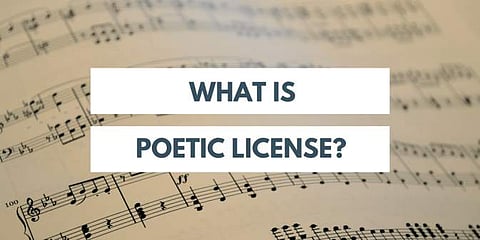

In last week’s column, I discussed these three grammar myths:
1) Don’t split an infinitive.
2) Don’t end a sentence with a preposition.
3) Don’t start a sentence with a conjunction.
Reacting to the article, Sharyn Collins, editor of EFL magazine, writes: “When I started editing EFL magazine I was quite strict as to what was correct. Reading such wonderful articles by amazing writers have made me relax and realise that grammar can be artistic too. Just like speaking, communication is paramount.” Yes, grammar can be artistic. Creative people are not obsessed with grammar rules but use the language creatively. When I make this statement, I am not asking learners to violate the rules of grammar and produce grammatically incorrect sentences. The point I am trying to make is that one should not be obsessed with grammar rules. Meaning and effect in a piece of work are more important than meaningless grammar rules.
Creative writers and orators have ‘poetic license’. Grammar lovers may not like the term. The word ‘poetic’ comes the Latin ‘licentia’ which means ‘to be permitted’. It means creative people can depart from the rules of grammar in order to create a different effect in their writings or speeches. Shakespeare has violated many grammar rules in his works. Here is an example from Julius Caesar:
“Friends, Romans, Countrymen, lend me your ears”
The playwright has omitted the use of the word ‘and’ after ‘Romans’ in order to keep the line poetic. In a study by Dr Jonathan Hope, from Strathclyde University, the researcher states that Shakespeare’s innovative use of grammar set him apart from his contemporaries. According to him, “Shakespeare completely reinvented grammar, breaking away from the conformity of traditional rules.”
Here is one more example of the violation of grammar rules by Shakespeare in the play Julius Caesar. The following sentence was uttered by Marc Antony:
This was the most unkindest cut of all.
The sentence contains a double superlative: most unkindest. The playwright must have used the double superlative in order to produce an effect. The violation was deliberate on the part of the writer. It is wrong to use double superlatives without any specific purpose. Learners of English are advised not to violate such grammar rules.
Let’s consider another example from Robert Frost’s poem ‘Stopping by the Woods on a Snowy Evening’:
The woods are lovely, dark and deep.
But I have promises to keep,
And miles to go before I sleep,
And miles to go before I sleep.
Those who are obsessed with grammar rules might find fault with this extract. They might say that it is wrong to start a new sentence with a conjunction (“But I…”). Is it wrong? No. Why? Many noted writers have violated the grammar rule in order to produce a good effect.
Let’s discuss the myth ‘Sentences with double negatives are ungrammatical’ which has been perpetuated by teachers of English for decades.
Double negatives are two negative words used in the same sentence with the purpose of turning thought into positive. Many grammarians state that it is poor grammar. It is not ungrammatical to use double negatives. We use double negatives for a special effect.
Look at these examples:
I am not unconvinced as you think. (I am convinced.)
It is not uncommon to violate traffic rules in Chennai. (It is common to violate ....)
Double negatives are used in two contexts: i) An adjective with negative force is often used with a negative in order to express a positive meaning as in the sentences above. ii) To reinforce an idea as in this example: I never asked him why he didn’t attend my birthday party, nor did I want to know from anyone why he didn’t attend the party.
However, the following sentences with double negatives are ungrammatical:
You can’t see no student in the class.
I don’t find no place to park my car.
In the following sentence, we find a double negative which is used to reinforce an affirmative.
We couldn’t not help him when he expressed his situation.
This sentence is more powerful in expressing our intention than the sentence “We could help him.”
